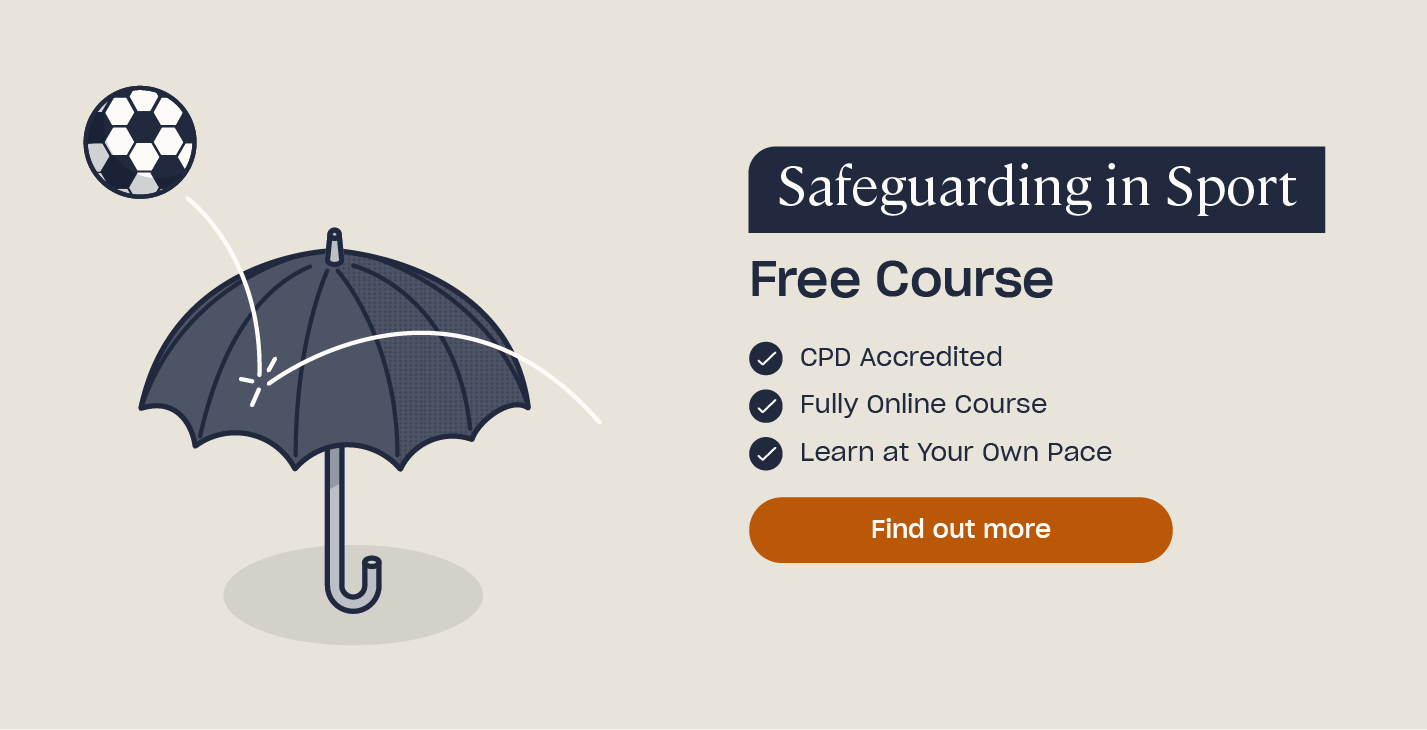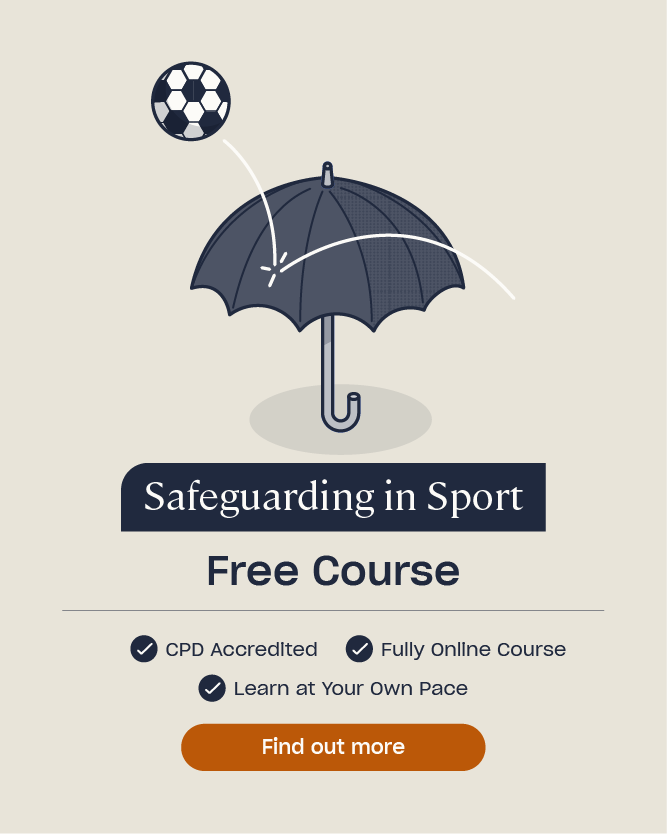How to Become a Sports Coach
Sports coaching is an extremely enjoyable and rewarding role that can be full of challenges and opportunities to develop. This is true for coaching at all ages and levels of ability.
If you’re interested in becoming a sports coach, you need to be aware of what the role entails and the relevant training you will need to do. In this article, we will introduce you to the responsibilities of a sports coach, what qualifications might be required, and the skills you need to be successful.
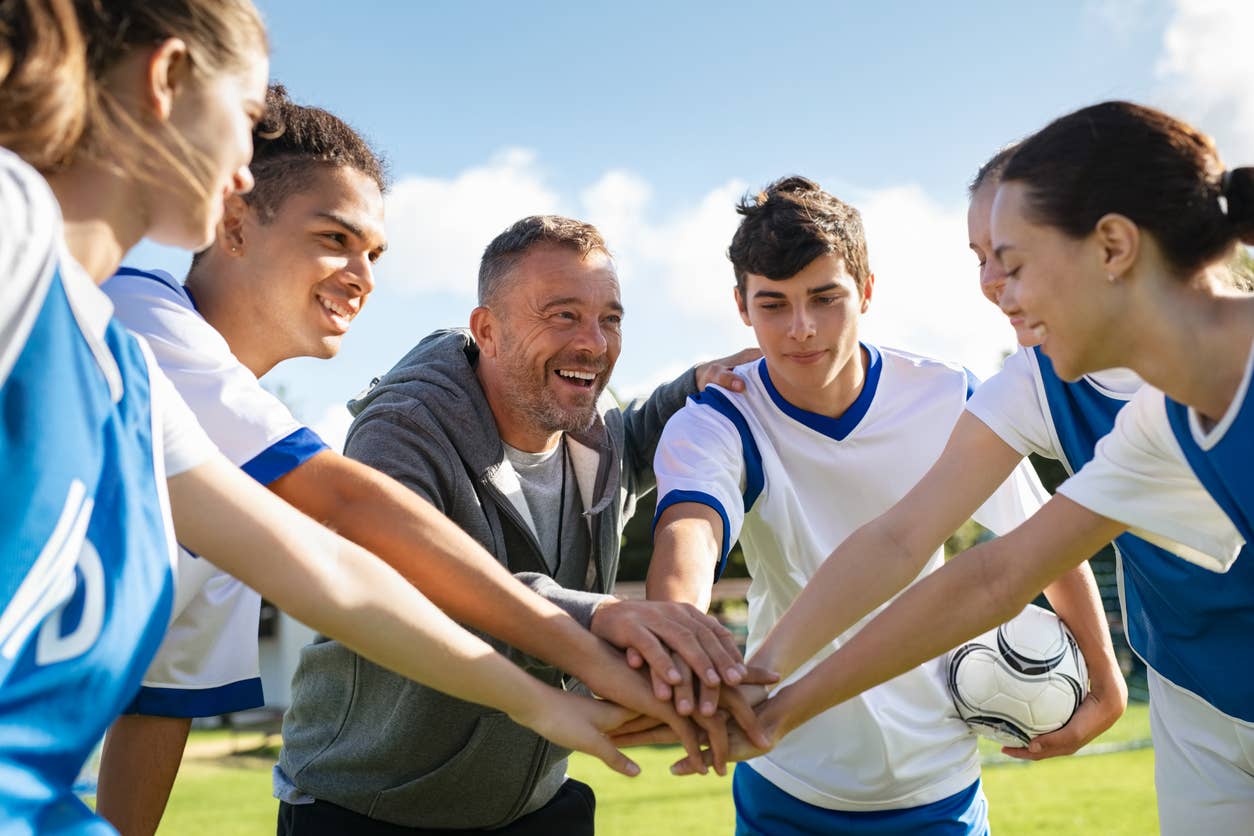
What is a Sports Coach?
A sports coach is someone who trains and leads an individual, group, or team in a particular sport. The role can vary depending on the setting you are in, from volunteering at a local children’s under 8s team, to having a specific role within a professional sports organisation.
As a sports coach, you will help people to participate, improve, and enjoy their chosen sport. It is the responsibility of a coach to plan and deliver training sessions as well as lead on gameday and at competitions. This involves using sport specific knowledge to ensure the sessions are relevant to the participants and the skills they need to improve. It is also usually the duty of the coach to ensure the correct equipment, facilities, and safety measures are in place.
There are many sports to consider a coaching career in. Typically, people tend to coach in sports that they have participated in previously as they have the experience and skills to pass onto others. However, this is not always the case, and people do go into sports coaching without having participated in the sport.
In terms of career progression, it’s important to think about where is the best place to start in order to achieve your goals as sports coaching presents a number of different levels and settings in which you can work in. For example, a recent graduate might decide to coach a local junior team or a school’s team, whilst a retired professional player might work with a club’s youth players in a professional setting.
What Qualifications Does a Sports Coach Need?
Both you and the sports organisation have a responsibility to make sure coaches have the relevant qualifications and training for the role. This will depend on the level, age, and type of setting you want to coach in. Each sport will also have its own coaching qualification requirements in order for you to be able to start coaching. Visit the National Governing Body (NGB) website here to learn about what may be required for your chosen sport.
There are coaching pathways that are not governed by an NGB such as schools, gym’s and leisure centres. In cases like these you should investigate with the organisation what qualifications they require.
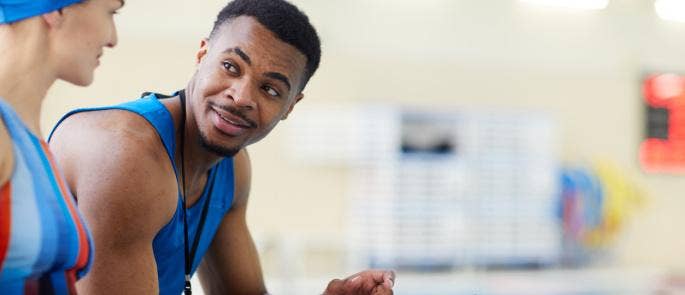
Coaching Levels
Generally, Level 1 is a short introduction that enables you to assist other coaches and take part in coaching younger-aged children.
Level 2 is generally the minimum criteria a sport requires for an individual to start leading sessions. Level 2 covers more content over a number of weeks and typically allows you to work with all ages of children and adults at community (amateur) level. It is often the case that Level 2 is required by each sport, regardless of any other qualifications a person might have.
Level 3 and above is usually for those who are looking to progress things further, often at a professional level. These courses are taken over a longer period of time and detail elements such as video analysis, tactics, and strength & conditioning.
Apprenticeships
An apprentice route is an option in places such as schools and fitness centres. It is particularly popular in the fitness industry as fitness centres have opportunities to become a gym instructor and many then choose to become a personal trainer (PT – Level 3) and become self-employed.
A personal trainer (PT) needs to achieve a Level 3 qualification to be insured and recognised as fully qualified. Setting up your own sports coaching business requires further investigation to ensure factors such as insurance and safeguarding training are in place.
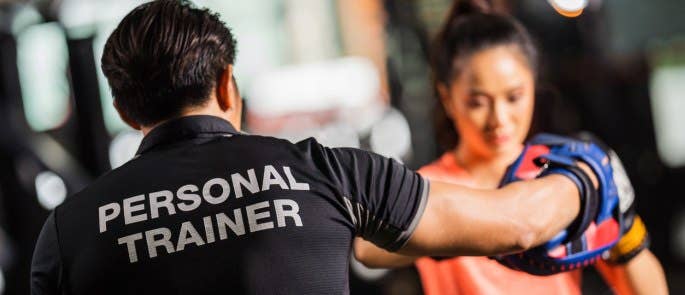
Schools also take sports apprentices on and this is a fantastic start point in a coach’s journey. These roles usually involve participating in the practical side of the PE department and coaching the school sports teams.
Sports Coaching Degrees
There are options to study sports coaching degrees and there are other degree-level courses that would support those who want to progress their understanding further.
Often those who study a sports coaching degree have completed a sports qualification at college or 6th form, for example a BTEC in sports coaching or an A-level in Physical Education. This isn’t always the case though, and if you want to study a sports degree as a mature (21+) student, you should get in contact with a provider direct to see what requirements they have. Usually providers take into account experience and knowledge when considering applications from mature students.
Remember your chosen sport is still likely to require you to do their Level 2 training.
Sports Club Insurance
Sports club insurance should be in place at any sports club you come into contact with. Ask to what extent you are covered and decide if you need your own coaching insurance. If you are planning to be self employed you will certainly need to have your own insurance. The good news is that getting your own insurance isn’t expensive and can start from as little as £4 per month.
Safeguarding Training
Due to historic cases and changes in the law, it is absolutely crucial that all adults working with U18s have the appropriate safeguarding knowledge. Your chosen sport will have guidance for you and this topic will be covered in your coaching courses. Take a look at our Guide to Safeguarding Children in Sport to understand your responsibilities for safeguarding in sport.
Ultimately, safeguarding should be a top priority for sports organisations. Taking a proactive approach to safeguarding training and developing your knowledge will showcase your commitment to ensuring that every child feels safe participating in the sport.
Free Safeguarding in Sport Course
Our Safeguarding in Sport Course will provide you with practical tools and knowledge to use in your sports club or organisation, helping you to ensure your commitment to excellence in safeguarding. We are very pleased to be able to offer this course for free to all.
What are the Skills and Qualities of a Good Sports Coach?
A key to success is the ability to deliver your sessions with the same high standards each and every time you coach. Be yourself and do it your way, but remember – whatever your style, you will need to make each session engaging, challenging, and rewarding.
Some things you do will work well; others you’ll see as learning opportunities to do better next time. You will work with lots of different personalities. Some will soak in your every word, and others will require extra effort and preparation so that you can fully engage them and meet their needs.
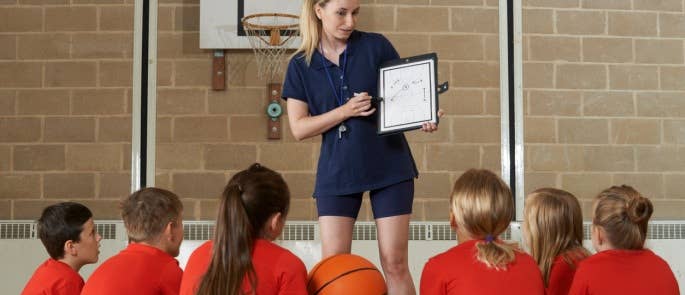
Building positive relationships is key to engaging your participants and gaining their commitment. As the old saying goes ‘nobody cares how much you know until they know how much you care’ (Theodore Roosevelt). Find opportunities to get to know your participants and what sort of struggles they might have away from sport so that you can empathise and adapt when necessary. If you’re looking to advance your knowledge on relationship building, why not take a look at our Challenging Behaviour Course.
Overall, there are many factors which will determine how successful your sessions will be. Being positive and having a presence is crucial. Think about the individuals or teams motivating factors and outline how the session will meet that motivation. Consider the following questions:
- What is your warm up?
- What specific skill are you focusing on?
- How long will each element last?
- Have you thought about opportunities to do what your group/participants find fun?
- What will you do if something isn’t going well?
- Have you thought about how many people you are coaching?
- What equipment do you need?
- Does the weather affect anything?
- Will you use a whistle or a timer?
See each session as a learning opportunity to help you determine what works best for both you and your learners.
How Do I Secure a Job in Sports Coaching?
There are a number of different routes into sports coaching. Start by thinking what exactly it is you want to do, and then think about how to get there.
Tips for Securing a Sports Coach Role
- Start coaching. Whether it’s coaching at your child’s local sports club, volunteering at a local school, or a placement at a professional sports academy, experience is vital.
- Sign up. Find out what your chosen sport requires in terms of training and qualifications.
- Network. Contact people in the sports organisations that you are looking to coach in, and see if you can volunteer or shadow.
- Apply for roles. This process will give you knowledge of what is required during the recruitment process.
- Continue your professional development. Look for opportunities to complete training and gain qualifications as this shows initiative and determination to any potential organisations you want to coach for. With High Speed Training, you can cover topics such as Coaching and Mentoring, Challenging Behaviour, and Safeguarding in Sport.
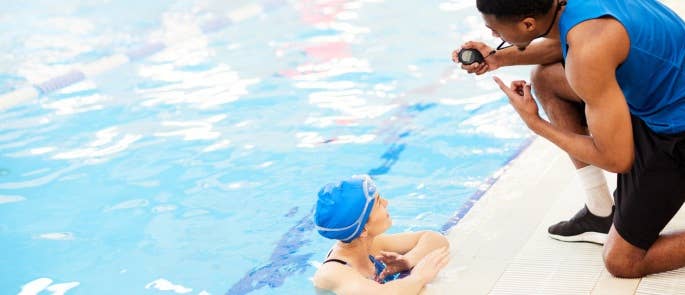
If you think you have some of the skills needed to be a sports coach and the role appeals to you, then this may be a fantastic opportunity for you to pursue. It’s essential that you have an understanding of the requirements and routes available so that you can get started with the next step of your coaching journey.
Further Resources
- Guide to Safeguarding Children in Sport
- Child Protection Photography Policy: Free Consent Form Template
- Safeguarding in Sport Research: Partnering with Paul Stewart
- How to Find the Right Career for Me
- Safeguarding in Sport Course


